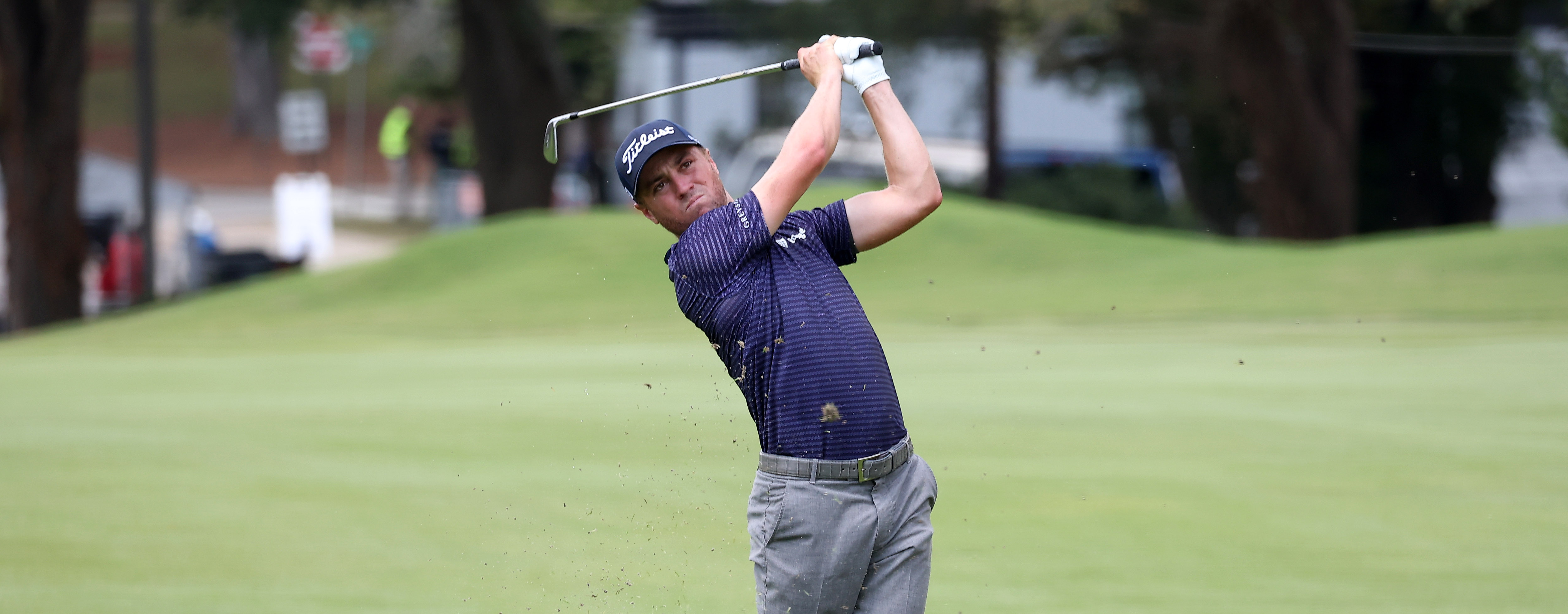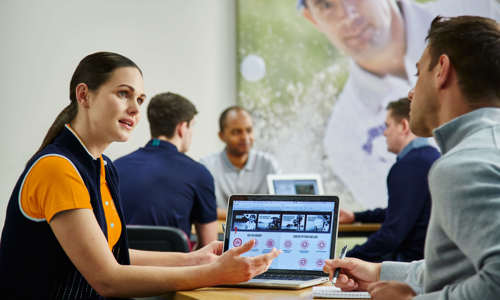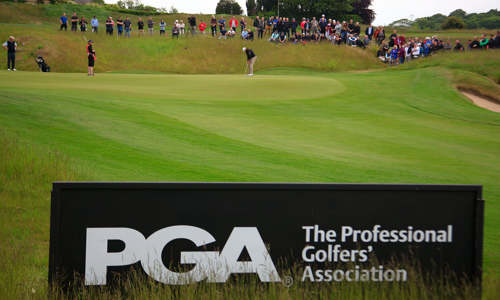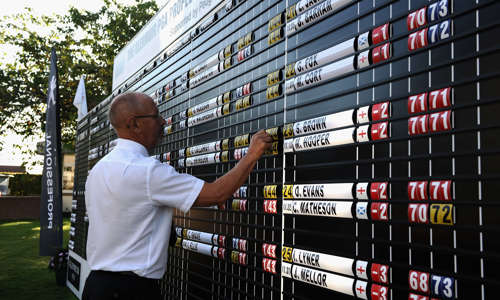Edwards has enjoyed a distinguished playing career that includes representing The PGA in three PGA Cup matches. He is a PGA Professional and a highly accomplished coach. On top of that, he has been a qualified referee for nearly a decade now, and, earlier this year, he made his US Major debut as Xander Schauffele held off Bryson DeChambeau in the US PGA Championship.
What made you get into refereeing?
I finished playing in about 2015 as my back was bad, and I just couldn’t physically string rounds together. I still wanted to be around tournament golf, so I had conversations with some friends in the industry, and they said that they were short of referees, I thought it would keep me around tournament golf – so I gave it a go.
Did you find it daunting?
Not really. When I put my mind to something I can generally get my head around most things. It’s time-intensive to sit down and pass the exams because you need to know the definitions, the rule numbers and what are called the clarifications. Daunting is the wrong word, I just think that it takes a lot of time, and I’m still learning now.
Every week you learn something, so it’s more of an ongoing process. You learn the rule book, and there are people who know the book inside out but put them in front of a player under pressure to give a ruling then that’s a different scenario, as the player doesn’t want to know a rule number. He just wants to know how he can get his ball back in play.
Does it help to have been a player?
You pretty much know what they’re going to ask before they ask it because you’ve been in that situation yourself, and I think that really does help when you’ve played to a high level and you understand how players think. I think they respect me as a referee because they know I’ve played as well.
Did you have any dealings with any well-known players?
I had a Patrick Reed ruling where he’d hit it right of the 5th green and the ball ended up in a spectator’s pocket, so that was a fun one. It’s a very simple ruling but you’ve got the crowd around you all laughing and joking. He was great with the spectator, so it was all good. I also had a ruling with Dustin Johnson and Justin Thomas, so some of the biggest names.
One thing that I learned from great referees is you’ve got to take your time and take in the whole situation even if you’ve got one of the greatest players in the world in front of you and they’re looking to get out of the situation that they’ve put themselves into. It doesn’t matter who it is, the rules are the rules.
What level of briefing did you receive?
The PGA of America do it incredibly well and the experience for spectators, players, officials and referees is just spectacular from start to finish. For the rules officials, everything was very detailed. We got a folder with absolutely everything in, including the green speeds, cutting heights, weather and anything that’s involved in a tournament week. It’s a major so it has to be.
Does it follow that the higher the level of the player, the better the understanding of the rule book?
It does because it’s one of their one per cent marginal gains that Dave Brailsford talks about. If they have an in-depth knowledge of the rules, then the more that they can use them to their advantage. Sometimes they’ll find themselves in situations that they know how to get out of, other times they know how to get out of a situation but they need a referee just to clarify things, but certainly the higher up you go on the tours, the better their knowledge.
How much has refereeing enriched your career?
I coach a lot at Carus Green, I still play the odd tournament, and, with the refereeing, I never get stale. I’ll be on the road for a few weeks, and then I’ll go straight back into coaching, and there is always a nice variety. I’m very privileged to be able to go to work for various bodies like the Asian Tour, the PGA of America and the DP World Tour, and the more you keep learning, the better you get at it. I’ve surrounded myself with great refs from minute one and to do what I’m doing is just very cool. It’s maybe not as glamorous as it sounds and you see a lot of hotels and airports but it really is good and it’s taken me to some amazing places.
What is the right attitude?
The one thing that great refs will tell you is that everybody has made a mistake. All you're trying to do is go in there with the knowledge that you've got and get these guys out under the rules so they don't gain an advantage over everybody else.
There is a great quote from John Paramor where he asked a room full of referees to put their hands up if they'd never made a mistake, and he said that if anyone did, they would be the first one that's never made one. So you're just trying to limit the errors.





































